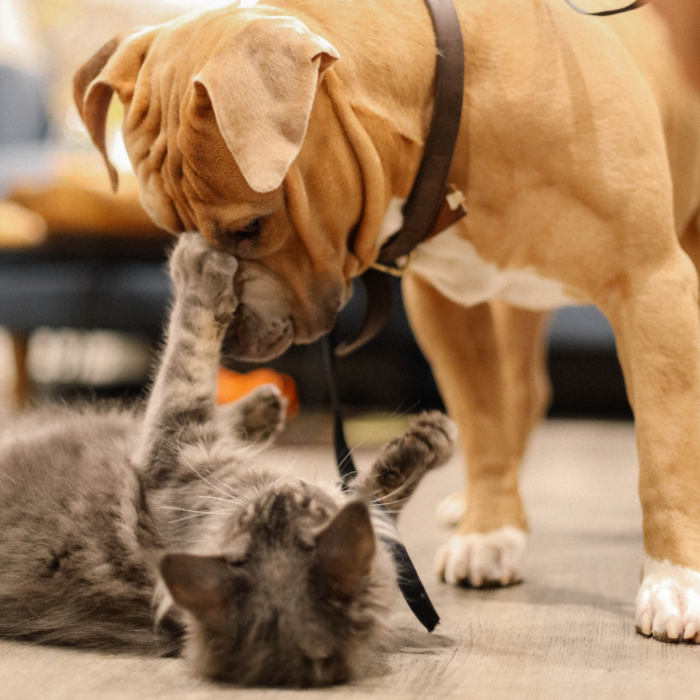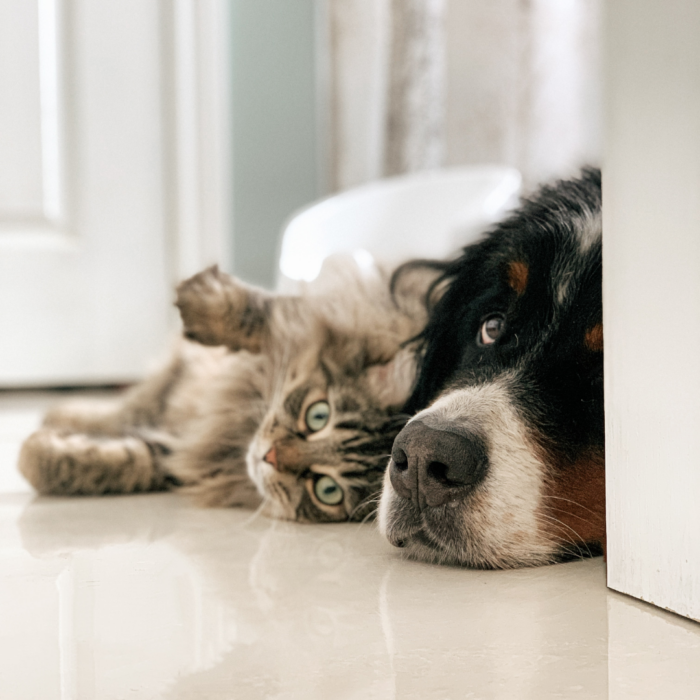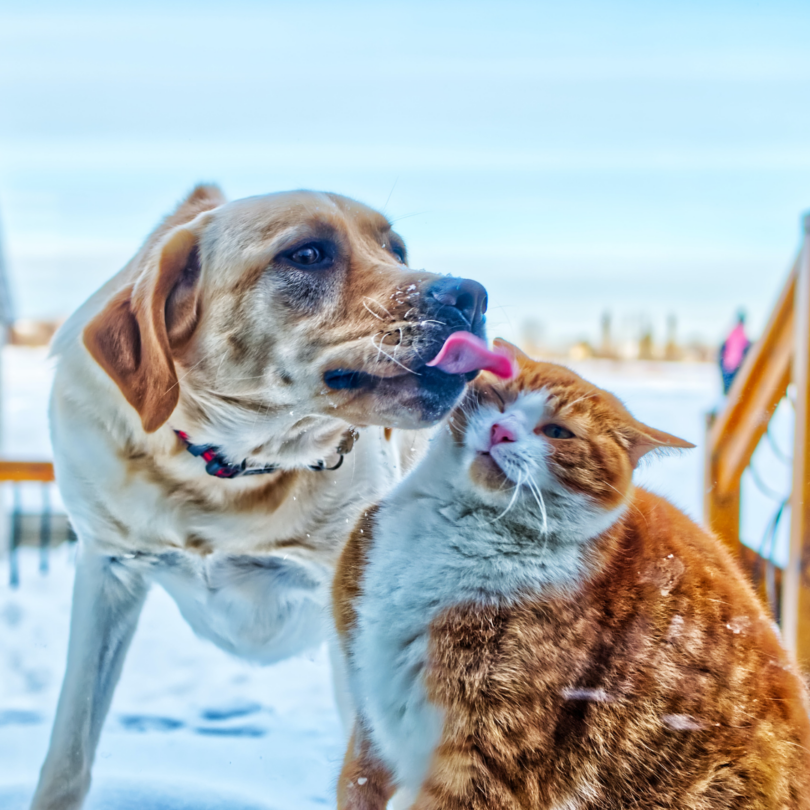In episode 64, I speak with Naomi Rotenberg about resolving conflicts between your dog and cat. Some questions that are addressed during the episode include:
- What expectations do we have for our pets that may or may not be realistic? How can we adjust our expectations?
- Does the environment factor into behavior issues?
- Can we find solutions for a more harmonious household
- How can we address all of our pet’s needs without drastically changing our homes and lives?
Watch our conversation on my YouTube Channel.
Naomi Rotenberg, she/her, is the owner of Praiseworthy Pets and focuses on the cat-dog interspecies relationship. She helps pet clients all over the world enjoy a household where cats and dogs coexist safely and peacefully. She also provides coaching for other pet professionals who want another pair of eyes on their cat-dog cases.
Naomi is a Karen Pryor Certified Training Partner and received her Master’s in Animal Behavior and Conservation from Hunter College. She is also a licensed Family Paws Parent educator (because in addition to cats and dogs, she likes human kids too)!
She hosts her own podcast – “It’s Training Cats and Dogs!” – where she interviews other pet professionals about how they use their expertise to manage their own multi-species households. She also answers cat-dog-related questions from her listeners.
How do we define conflicts between your dog and cat for this episode?

Some levels of conflict can be normal. Dogs and cats will inevitably have conflicts living in the same household.
Co-existing in a relatively normal and healthy way may include communicating effectively with one another without needing a human to intervene or if the animals can read one another’s body language and de-escalate, decompress, and reestablish their baseline relationship on their own.
But if there’s chronic stress, a change in their behavior over time, and an inability to resolve the conflict on their own, then professional help is typically needed.
Serious inter-household conflicts (or inter-species conflict) usually include chronically stressful interactions between the felines and the canines who are consistently interacting in the home. And those interactions cause the behavior repertoire of the animals to change. For example, social behaviors decrease and the dog and/or cat spends most of its time hiding or isolating.
“The important characteristic to chronically stressful interactions is that the animals cannot typically resolve them on their own. They need humans to redirect or intervene regularly to avoid escalations of the behavior.”
– Naomi Rotenberg
How do you assess the conflict in the home between a dog and cat?

Questions to ask:
- What does the conflict look like?
- How often does the conflict occur?
- Is there a safety concern? How severe are the conflicts?
- What are the antecedents that cause the behavior to take place? Are they predictable?
- What is one animal doing that bothers the other?
- How is this behavior being reinforced?
- How can we insert alternative behaviors to get the same (or similar) reinforcement?
- How does this impact your animals’ (and your) quality of life?
What are the best management strategies to support everyone in the household?
Passive management
- Physical or visual barriers
- baby gates in doorways
- Muzzle training for dogs
Active management
- Redirection cues
- Anticipating a conflict and being able to redirect
- Routine changes
We can teach the dog other behaviors they can do in order to gain space or get our attention besides aggressing toward the cats. Once they have a broader range of behaviors they tend to relax and stop overly focusing on the cat.
Sometimes long-term management is a solution within itself and sometimes rehoming is the best option. If the quality of life of the animals or humans is not good, rehoming can be the better decision because they won’t be living in chronic stress. We care deeply for our pets and want the best possible life for them and living in a chronically stressful environment isn’t the best life. These choices can be agonizing and painful, but ultimately the right one for all involved.
Where to find Naomi Rotenberg:
- Praiseworthy Pets
- It’s Training Cats and Dogs Podcast: Can a Dog with Prey Drive Live with a Cat?
- FREE Management Guide
Other Resources:
- Trigger Stacking and Your Dog’s Threshold
- Observing Canine Body Language
- Ep 60: Navigating Difficult Decisions: A Story about Rehoming with Tara Stillwell

